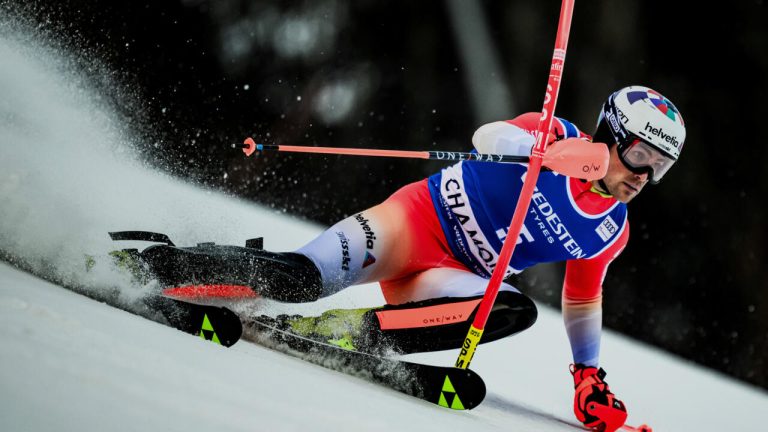Playing competitive sports changes the game at work
A recent 24hscore report titled “Leaders at Play” by The Institute of Leadership & Management suggests that engaging in competitive sports offers individuals an edge in their professional lives. However, it notes that men tend to benefit more from this advantage due to their higher participation rates in sports. According to the report, about three-quarters of workers who actively engage in competitive sports believe that it equips them with valuable skills and capabilities that translate into workplace advantages.
The study surveyed over 900 respondents, revealing that 75 percent of individuals involved in competitive sports perceive it as providing them with skills beneficial in the workplace.
Interestingly, the report highlights that city workers, particularly in the financial sector, reap the most benefits from participating in competitive sports, with 60 percent expressing support for such activities. This contrasts sharply with the support seen among health and charity workers, standing at 28 and 30 percent, respectively. Additionally, half of finance professionals believe that engaging in competitive sports gives them a competitive edge, a sentiment not as strongly echoed in other sectors.
Moreover, the report underscores that physical fitness is not the sole motivator for individuals to partake in competitive sports. Other reasons cited include improving overall health (29 percent), seeking personal challenges (21 percent), and managing mental well-being (18 percent).
Gender Disparity in Competitive Sports

Despite the recognition of the career benefits associated with playing competitive sports by both participants and senior leaders, women face a notable disadvantage. Research indicates that 20 percent fewer women have participated in competitive sports compared to men, resulting in an inequality in accessing career opportunities and contributing to gender disparities in the workplace.
Kate Cooper, Head of Research, Policy, and Standards at The Institute of Leadership & Management, emphasized the significance of addressing this issue: “We live in a competitive world, and our research clearly demonstrates that the skills cultivated through sports are applicable in the workplace. However, the underrepresentation of women in competitive sports places them at a disadvantage in accessing career opportunities and perpetuates gender inequality in professional settings.”
Lack of Employer Support
Despite employers acknowledging the benefits of transferring skills from sports to the workplace, only a small fraction, 20 percent, actively support their employees in participating in competitive sports. Surprisingly, nearly 40 percent of employers do not provide any support for sporting activities, further hindering employees from leveraging these opportunities for personal and professional development.

Parallels Between Sports and Organizational Life
Competitive sports foster the development of several key capabilities that are highly transferable to the workplace. These include:
- Teamwork: Learning to collaborate effectively within a team dynamic.
- Confidence: Building self-assurance and belief in one’s abilities.
- Building Cohesion: Creating unity and camaraderie among team members.
- Mental Toughness: Developing resilience and the ability to persevere in challenging situations.
- Drive for Personal Development: Striving for continuous improvement and growth.
- Critical Reflection on Performance: Analyzing and evaluating one’s performance to identify areas for improvement.
Kris Chesney, former England Sevens, Saracens, and Toulon rugby player, emphasized the parallels between the emotional experiences of elite sports and organizational life. He highlighted the importance of mental toughness and confidence developed through sports in coping with challenges and setbacks in the workplace.
Furthermore, Kris emphasized the significance of effective teamwork in both sports and professional environments. Drawing from his rugby experience, he stressed the importance of delivering feedback within a team context, emphasizing the role of the feedback provider in achieving desired outcomes.
Transferable Skills from Sports
Danny Powell, Skill Acquisition Developer at British Para-Swimming, and Institute of Leadership & Management Sport Report Ambassador, affirmed that sports develop transferable capabilities. He stated, “My experience of working with athletes and coaches across various sports has highlighted the significant benefits of developing transferable skills when transitioning into new fields.”
Positive Impact on Mental Health

Gemma Morgan, Speaker, former army officer, Wales lacrosse captain, and Institute of Leadership & Management Sport Report Ambassador, highlighted the positive effect of sports on mental health. She emphasized that when sports are coached effectively and positive environments are created, they offer an inspiring opportunity to develop personal skills with lifelong benefits that are transferable to various contexts.
Morgan underscored the importance of prioritizing health and well-being as the primary motivation for sports participation. While acknowledging the secondary benefits such as leadership and teamwork, she emphasized that the primary focus should be on promoting physical and mental wellness.
Overall, the findings highlight the significant role of sports in fostering transferable skills and capabilities that enhance professional success and well-being. Addressing gender disparities, increasing employer support, and promoting the holistic benefits of sports participation can contribute to creating more inclusive and resilient workplaces.







